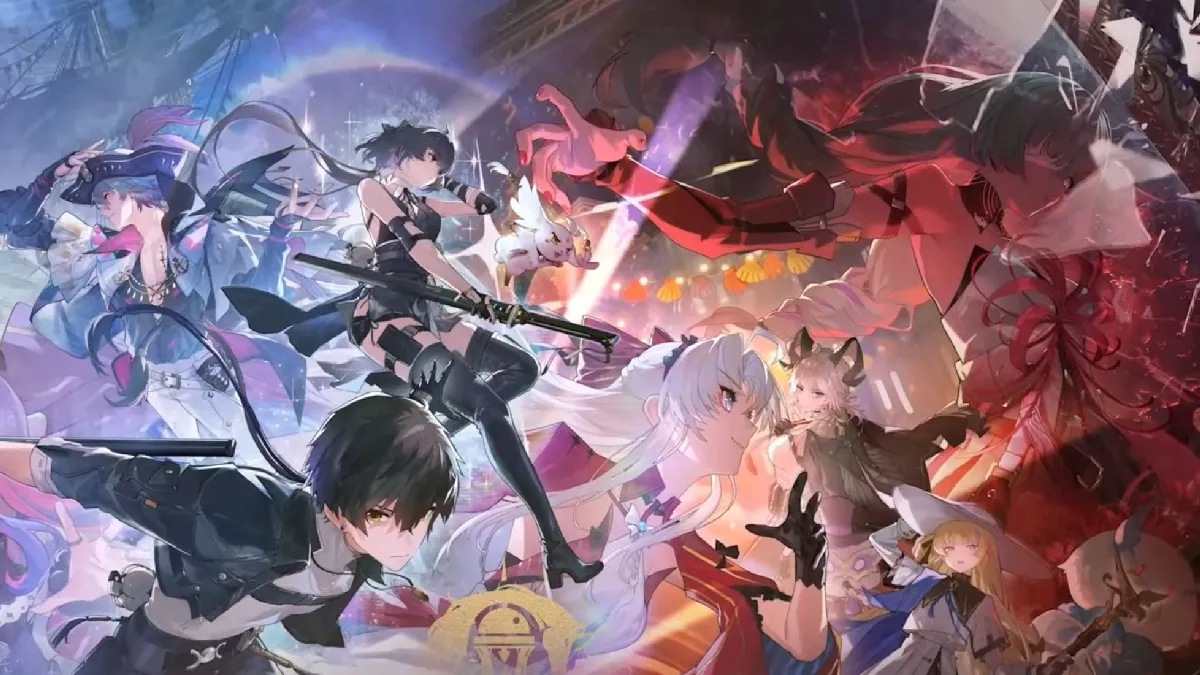In the complex web of contemporary geopolitics, Iran under Ayatollah Ali Khamenei has emerged as a shadow empire, its reach extending far beyond national borders. Through a blend of ideological ambition and a vast network of proxies, Iran’s influence is felt in places as varied as Beirut, Gaza, and the corridors of power in Western capitals.
For Afshin Ellian, a Dutch-Iranian philosopher and law professor, this expansion of Iranian power is not just about territorial influence; it is an ideological crusade that erases Iran’s national boundaries in favor of a broader, religiously driven agenda. Ellian spoke to The Jerusalem Post on the possible risks and a narrow window of opportunity for Iran’s democratic future.
For Ellian, Khamenei’s ideological vision is not mere rhetoric but a deep-seated conviction that transcends the borders of Iran itself. He explained, “Ali Khamenei’s belief in the umma—the global Islamic community—isn’t just rhetoric. It’s a deep-seated conviction that erases Iran’s national boundaries, subordinating its people to an ideological mission.” This view, Ellian argues, reflects Khamenei’s larger ambition: to build an empire in which the Iranian people are but pawns in a much grander geopolitical game.
“Khamenei’s vision stretches from Tehran to Gaza and Damascus, bringing theocratic ideology and militancy to the doorstep of the West. “In Khamenei’s mind, his umma justifies any sacrifice,” Ellian explained. “That’s why he has no hesitation when it comes to supporting proxies in Lebanon, Syria, or Iraq—even when Iranians are suffering in the streets.”
Ellian, who has lived in exile since 1989 in Holland and is on a kill list of the Iranian regime, has made it his life’s work to expose the complexities of Iran’s ruling elite and offer insight into the struggles of the Iranian people. Speaking from a place of both exile and hope, Ellian argues that Iran’s deep-rooted issues stem from an ideological empire built on boundless ambition and proxies, devoid of national identity. Still, that true change lies in the potential for a democratic, secular Iran.
“In the Middle East, there is a line stretching from Tehran to Baghdad, to Damascus, to Beirut, and Tel Aviv,” Ellian reflected. “Khamenei’s Iran doesn’t think in terms of nation; instead, his ummah extends beyond Iran, encompassing Iraqis, Syrians, people in Gaza, Lebanon, and even students in the West. Khamenei has no borders.”
In his critique of Khamenei’s imperial ambitions, Ellian draws a stark historical parallel. ‘Just as Hitler needed the Jews as an ‘absolute enemy,’ Khamenei’s ummah cannot exist without an adversary,’ he states, likening Khamenei’s tactics to those of past totalitarian regimes. This concept of an ‘absolute enemy’ is essential to sustaining the ideological empire, feeding a phantom empire fueled by constructing a fictitious enemy.
Khamenei’s actions only reinforce Ellian’s argument. Following the October 7 Hamas attacks on Israel, Khamenei’s praise for the terrorists was unequivocal – “I will kiss the hands of those who planned the attacks,” Khamenei declared, a statement that Ellian interprets as a dangerous affirmation of global jihad. “The idea that a leader would kiss the hands of terrorists rather than prioritizing his own citizens’ welfare speaks volumes about Khamenei’s loyalty,” Ellian remarked. ‘This is a betrayal of the Iranian people.”
Ordinary Iranians have often been wary of taking to the streets due to the regime’s oppressive nature. However, sporadic outbursts of civil unrest do occur, notably the 2009 Iranian Green Movement, a political movement that arose after the June 12, 2009, Iranian presidential election and lasted until early 2010 and the 2016 Cyrus the Great Revolt, a pro-monarchy Iranian protest that took place at the Tomb of Cyrus the Great on Cyrus the Great Day, that led to protests calling for regime change.
“Iranians are tired of funding Khamenei’s proxies—Hezbollah, Hamas, and other groups that siphon resources from Iranian schools and hospitals. Our people want an Iranian-focused agenda, with no interference in other countries.”
Afshin Ellian, Dutch-Iranian philosopher and law professor
Perhaps the most famous resistance to hit the Islamic Republic since the fall of the Shah occurred two years ago. Protests also erupted in Iran in September 2022 following the death of Mahsa Amini, a 22-year-old Kurdish Iranian woman who died in police custody after being arrested by the Guidance Patrol for allegedly violating the country’s strict hijab law.
The protests, initially sparked by Amini’s death, soon became a broader movement against the government’s oppressive policies, particularly its control over women’s rights and freedoms. In response, the Iranian government implemented harsh measures, including internet blackouts, social media restrictions, and the use of tear gas and live ammunition to suppress demonstrators. By the spring of 2023, the protests had largely subsided, but the ruling regime remained firmly in control.
In the search for an umma-driven empire, Khamenei’s leadership has leaned heavily on two entities: the Iranian Revolutionary Guard Corps (IRGC) and a sophisticated intelligence apparatus. “The IRGC has perfected the art of subversion, intelligence, and coercion,” says Ellian, adding that Khamenei has had his intelligence officers study Soviet KGB manuals, instilling within them techniques of ideological control and repression. “They are trained not only to police Iran but to infiltrate communities abroad, spreading their message, suppressing dissidents, and protecting regime interests wherever they are.”
The IRGC’s influence extends into the darkest recesses of global crime, notably in drug trafficking. It is known to operate heroin and methamphetamine trade routes in collaboration with international cartels, funding its paramilitary activities and terrorist proxies.
“The IRGC has become one of the largest drug trafficking networks in the world,” stated Ellian. “Profits from drugs like heroin, grown in Afghanistan, fuel Hezbollah in Lebanon, Hamas in Gaza, and even terrorist factions beyond the Middle East.” Through these activities, Khamenei’s empire self-funds, perpetuating a system where Iranian lives and well-being are sacrificed on the altar of Khamenei’s regional ambitions.
Meanwhile, Iran’s young population grows increasingly frustrated. Afshin Ellian paints a vivid picture of widespread disillusionment in Iran, where citizens view Khamenei’s ideological obsessions as a betrayal of the nation itself. “This dissatisfaction has found a voice in organizations like the 7 Aban Front (Solidarity for Iran’s liberation) named after the Persian seventh day of the month Aban or Cyrus Day,” says Ellian. “These dissidents are calling for a secular and democratic Iran that cares for its own, not for a religious empire.”
“Iranians are tired of funding Khamenei’s proxies—Hezbollah, Hamas, and other groups that siphon resources from Iranian schools and hospitals,” Ellian told the Post. “Our people want an Iranian-focused agenda, with no interference in other countries.”
The Iranian people’s rejection of foreign interventions is palpable, says Ellian. “Iranians see Khamenei’s alliances as a betrayal. When Hamas attacked Israel, many Iranians reacted with fury, asking, ‘Why should we suffer for Gaza or Lebanon? My life is for Iran, not for Khamenei’s dreams of a transnational ummah: Neither Gaza nor Lebanon, My Life for Iran .’
With Khamenei’s health in decline and the issue of succession hanging in the balance, Ellian sees an opportunity for change. “Several contenders exist, but none of them bring hope to the people,” he told the Post. Figures like Khamenei’s son Mojtaba hold onto the same imperial vision, ensuring that the regime’s transnational ambitions continue even after Khamenei’s eventual departure. However, the uncertainty surrounding Khamenei’s health could open a window for reform, if the West chooses to act decisively in support of Iranian dissidents.
“The regime’s obsession with protecting and extending the umma won’t die with Khamenei,” Ellian added, however. “Though his absence could spark enough uncertainty to create space for change.”
Ellian believes this could be an opportunity for the West to support Iranian dissidents in unprecedented ways. By supporting technological tools that bypass censorship, allowing protesters to mobilize without fear of surveillance, the Iranian opposition could gain crucial momentum. “The Iranian people need a network of support to overcome the IRGC’s overwhelming power,” he says. “They are capable of incredible bravery, but bravery alone isn’t enough against a regime as entrenched as this.”
What’s at stake for Khamenei?
Ellian believes the stakes of Khamenei’s demise or succession are incredibly high. “The regime is not an invincible fortress,” he says, “but it demands Western powers to understand that the real threat of the Iranian regime is not just nuclear. It’s an ideological crusade, one that reaches from Tehran to Lebanon to Europe.” Ellian warned that Iran’s reach extends to international universities, mosques, and community centers in the West. “Iranian intelligence has nurtured sleeper cells, organized crime connections, and student groups loyal to Khamenei’s line. Western leaders need to be aware that Khamenei’s invisible empire is already within their borders.”
For those in exile like Ellian, a secular Iran represents hope and a return to an ancient cultural heritage that values justice, cooperation, and peace. “Iranians yearn for a future that celebrates Persian identity rather than Islamist ideology,” he states. And symbols of that cultural pride, like Crown Prince Reza Pahlavi, have drawn significant grassroots support within the country, even among those who favor a republic over a monarchy. “Prince Pahlavi is less about political power and more a unifying symbol—someone who embodies what the Iranian people truly want.”
Reza Pahlavi stands out as a symbol of unity for this new vision of Iran. Although some dissidents prefer a republic, Ellian notes that Pahlavi transcends politics. “He’s not seen as a power-hungry figure but as a unifying force, an emblem of Iranian resilience. His 2021 visit to Jerusalem was symbolic, as many Iranians supported his outreach to Israel—a signal of friendship, not hostility, and a fresh vision for the future.
Ellian believes this vision could become a reality with Western support. He urges world leaders to aid Iranians by cutting through Tehran’s sophisticated surveillance networks, allowing protests to grow. “Iranians are brave but lack support. Their movement would gain strength if they could communicate freely during protests without fear of immediate arrest. Civil courage is born from knowing that you’re not alone.”
Ellian also warned of the global reach of Iran’s ideological war, which extends to organized crime networks and student groups in the West. “Iran’s proxies don’t just reside in the Middle East—they infiltrate Europe and North America, targeting dissidents and Jewish communities alike. Iranian-backed student organizations and cartel connections present a significant security threat.”
Despite these obstacles, Ellian’s faith in the Iranian people remains steadfast. “Iran is like fire beneath ash,” he said. “The people are angry and resilient. With the right support, we can create a secular, peaceful, and democratic Iran that fosters cooperation rather than conflict. Iran’s future should be about cooperation, friendship, and democracy,” he concluded. “When that day comes, it will not only be a victory for the Iranian people but a triumph for the world.”







